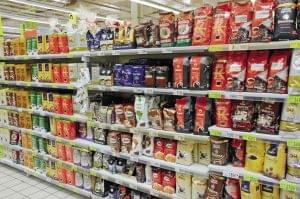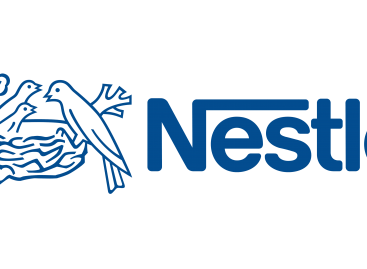Magazine: Whole bean coffee makes a return
After the success story of capsule coffee in the last few years, sales of whole bean coffee have also strengthened recently. Raw coffee’s price elevated last year and this could be felt in almost every product category. Roasted coffee is the biggest segment and the price increase was the greatest in this category: branded products have become 10 percent more expensive. Rising prices have made shoppers even more price-focused than before. The market didn’t contract though, thanks to the two-digit growth of whole bean and capsule coffee sales.
Judit Hellinger, trade marketing specialist of Tchibo Budapest Kft. told our magazine that more and more consumers wish to brew coffee house quality coffee in their homes. The penetration of automatic coffee makers, whole bean coffee grinders and capsule coffee machines is growing. According to Péter Szabó, sales manager of Mocca Negra Zrt. (the manufacturer of Bravos coffee), the opening of small artisan cafés plays a major role in the development of the whole bean coffee segment – these places use the best ingredients to make the perfect cup of coffee for guests.

Judit Hellinger
trade marketing specialist
Tchibo Budapest

Péter Szabó
sales manager
Mocca Negra
Ms Hellinger revealed that from 10 new coffee SKUs 4 are whole bean products, 3 are ground coffees and 3 are capsule products. She also spoke to our magazine about the appearance of generic coffee capsules, which are cheaper than the original products. Paola Autiero, Lavazza’s head of marketing opines that consumers are increasingly curious, sophisticated and conscious. They are trying new flavours if they represent reliable quality – just like Lavazza products. Coffee buying is planned in advance: 82 percent of shoppers know they will buy coffee before entering the store, but 26 percent only decide which brand while standing in front of the shelves.

Paola Autiero
head of marketing
Lavazza
László Kozeschnik, managing director of Semiramis Kft. informed Trade magazin that consumer taste is slowly changing. In the last few years those who purchase the company’s products started buying lighter roasts, as these coffees reflect the beans’ original taste better. He stressed that finding the right retail channel for products is the most important element of the business strategy. For Semiramis it is cafés and specialist shops.
Tuyaerts Annabrand, Nestlé Hungária Kft.’s NESCAFÉ 3in1 brand manager talked to our magazine about the rise in out of home coffee consumption. Every winter and summer NESCAFÉ launches limited edition flavours – this summer it is coconut. NESCAFÉ Soluble Pure brand manager Katalin Nemes-Vidács revealed that there are more and more coffee house style products in the market for home use, e.g. NESCAFÉ Azera. She added that the discount supermarket channel is strengthening in sales.

Anna Tuyaerts
brand manager
Nestlé Hungária NESCAFÉ 3in1

Katalin Nemes-Vidács
brand manager
Nestlé Hungária
NESCAFÉ Soluble Pure
Tchibo put Tchibo Barista on the market this year: thanks to slow roasting, this premium product offers a café style experience at home. The company has made the packaging of the 1,000g format resealable – we learned from Géza Bonomi, senior brand manager of Tchibo Budapest Kft. For Mother’s Day they developed an online app called Poem Duet, by using which consumers could recite a poem together with a popular actor to their mom. Ms Tuyaerts spoke to our magazine about the growing importance of targeted online campaigns. The company was among the first in Hungary to come out with a branded stickers pack on Viber. Tchibo focuses on in-store presence too and tries to be present with great offers in every channel.

Géza Bonomi
senior brand manager
Tchibo Budapest
Innovation work and high product quality have always been key factors in the development of Lavazza. Ms Autiero revealed to us that the company is investing 4 percent of its revenue in research and development. She sees growing interest in organic coffee produced sustainably and in certified products, and added that more and more single-origin products turn up on store shelves. Lavazza is dedicated to improve the culture of coffee consumption with initiatives such as Coffee Design and Coffeetail, in cooperation with master chefs. The Lavazza brand is 122 years old and it perfectly expresses the laid-back Italian lifestyle. Lavazza is also the market leader in coffee bean roasting. Hungary is a market of strategic importance for Lavazza. In 2017 the coffee company started spending more on both ATL and BTL marketing tools in Hungary. The exclusive Hungarian distributor of Lavazza coffees is Coca-Cola HBC Magyarország Kft.

In 2017 Mocca Negra Zrt. introduces a top-category product range to the Hungarian market: 100-percent Arabica Bravos Premium will be available in 250g ground and 1,000g whole bean versions. In the autumn Bravos 3in1 products will return to shops with a new look and better taste. Bravos Classic instant coffee will come out in 50g format too. In the second half of 2017 communication will concentrate on the new Bravos 3in1 product. A younger group of consumers will be targeted, using social media and online platforms too. //
Related news
Nestlé supports weight control in key markets with new protein-based products
Tapping the protein trend, Nestlé keeps developing solutions to meet…
Read more >Best Global Brands: the most valuable brands in 2024
This autumn global brand consultancy Interbrand unveiled its Best Global…
Read more >Related news
They want it to be premium, but also sustainable – expectations of the youngest generation
GlobalData’s latest report, “Demographics in Retail and Apparel” – which…
Read more >Zsolt Liptai became the winemaker of the year
The Hungarian Wine Academy (MBA) has awarded Zsolt Liptai, the…
Read more >Tips for avoiding credit card fraud during the holiday season
The Christmas season is all about the joy of shopping,…
Read more >







